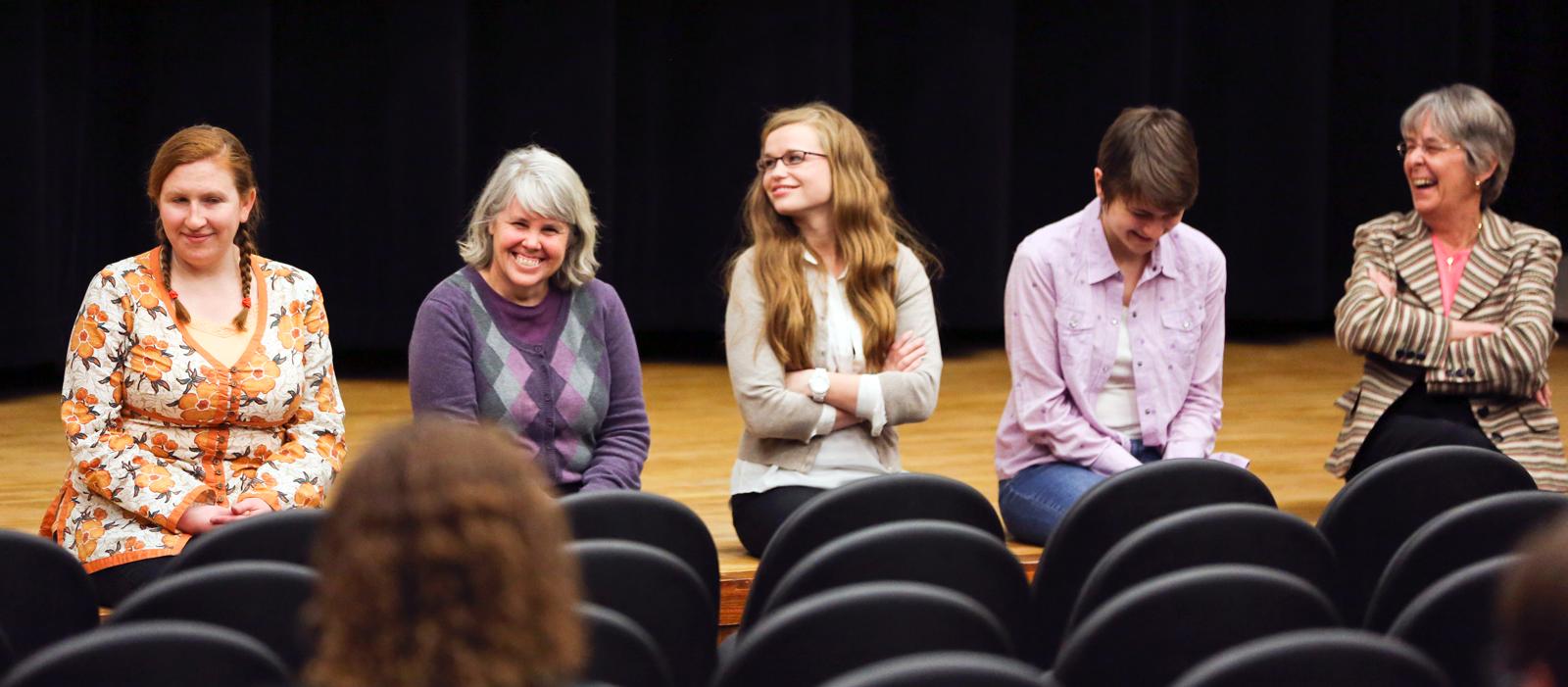Panel of women in STEM classes discuss change
A panel of women in science, technology, engineering and mathematics fields chatted about the challenges faced by women in these fields as well as how far women have come Wednesday after showing the documentary “The Gender Chip Project” in the TSC Auditorium.
Chris Hailey, associate dean of the College of Engineering, said she was struck with the discussion about confidence in the film.
“There are probably people in this room who are struck with the confidence question of ‘Am I in the right major?'” Hailey said, adding the key is to surround oneself with a support group of people who understand challenges.
Helen Wilson, a liberal arts senior who was in the audience, brought up the question of how to be successful in a career-driven field while balancing work and family.
Finding the right partner and a relationship where each person’s aspirations are understood is important, Hailey said. She said she and her husband have followed one another to different areas of the country because of jobs that suited their careers.
It was commitment to the marriage that drove her to make such choices, she said.
Kim Sullivan, an associate professor in the department of biology, said women in STEM fields need to remember they don’t have to meet all their expectations at once, including motherhood.
“You don’t have to have children in your early 20s,” Sullivan said. “Most people that I know in my field had kids in their early 30s. You don’t have to do it all at once.”
Women who actively work to be hireable should be able to get the jobs they want, said panelist Clare Vaterlaus, who originally started out as a computer science major before turning to communication studies.
Vaterlaus, who now works for Eschelon Telecom Inc. in Idaho Falls, Idaho, said her background in computer science has helped her get jobs. She started out as a computer science major, but things changed when she got to her third computer science class and was the only female of 45 students.
“The first day I was there the boys said, ‘Are you here to find your husband?'” she said.
From the attitude of the students to the professor, she decided to move to another major.
Another topic brought up was how these women in STEM fields approach being a minority in their field.
Panelist Lanetta Sova, a junior in electrical engineering, said it is a little lonely being a woman in a STEM field because she often does not know how to relate to other females, such as those majoring in fields like elementary education.
“Sometimes I wish they would want to talk about the things I am doing,” Sova said.
An audience member asked the panel what the hardest thing was about competing in a male-oriented field.
Hailey said while working on a site in Hawaii several years ago, there was only a men’s restroom. Every time she wanted to go, she had to put a sign on the outside door. Since then, things have changed for the better, except for when women become bitter, she said.
She calls it “death by a thousand papercuts.” People will unintentionally make degrading comments about a woman’s position in STEM fields, but women don’t have to let it make them bitter, Hailey said.
“It’s been a long, uphill battle,” Hailey said. “I think we’ve come a long way, but again, to avoid the death by a thousand papercuts.”
– la.stewart@aggiemail.usu.edu
Twitter: @CarpetComm

